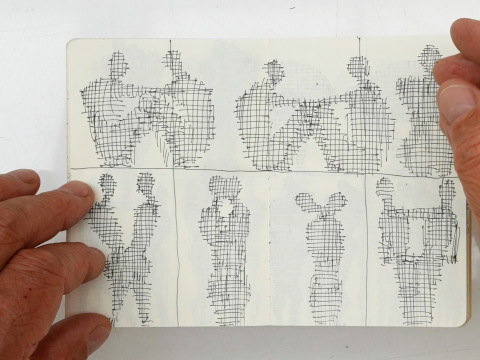
Meet the architects: Li Xiaodong
By Kate Goodwin
Published on 12 December 2013
It was when sitting with Li Xiaodong in a courtyard garden in the Huairou district, a mountainous area near the Great Wall, an hour north of Beijing, that many of his observations of Chinese culture and sensibilities became much clearer for me.
He highlighted what he saw as a distinction between Chinese and Western thought, the latter concerned primarily with the object and perspective, the former with the subject and what is contained. He took this further in talking about how he saw Chinese forms of representation, particularly painting.
The Chinese tend to focus on the intangible rather than the tangible – you see this in Chinese painting, in which the blank surface is often just as important as what is inscribed.
Li Xiaodong
For instance, in a painting that shows a pair of swimming fish, the presence of water, which can be inferred from the blank background, is a vital part of the image. Allowing room for the visitor’s imagination is essential.
Li Xiaodong
As I looked around me, Chinese landscape paintings I had seen came to mind. The mountains rose around us, but there was something about the colour and lack of contrast in the foliage, intensified by the light and atmosphere, which almost dematerialised them. Their detail was hard to make out, giving more an impression rather than a strong sense of their form.

He also recalled an experience he had as a young architect overseeing the construction of a hotel in the Yellow Mountains, where he developed a very different understanding of nature and landscape.
"From a distance you think of a mountain range as a series of objects seen in silhouette. But once you are within it, you start to perceive it as a series of spatial relationships that surround you. Your awareness of scale, distance, texture and enclosure all come alive and you become conscious of your own presence within it. Recognising this was a beautiful moment."
Sitting in that courtyard I was also intensely aware of the magic of my surroundings. The look of the mountains was completely foreign to me, so I took time to soak them in. The objects, furniture and details that surrounded us were also beautiful – teapots and crafted cups, woven trays, woollen blankets, the aroma of the tea. It was a feast for all the senses that gave me an intense appreciation of my environment and the delights it was offering.
Explore the Liyuan Library
Related articles

Video: drawing penguins at London Zoo
3 February 2025

My sketchbook: sculpture drawings by Antony Gormley RA
13 January 2025

Video: Merry Christmas from the Burlington House choir
18 December 2024




